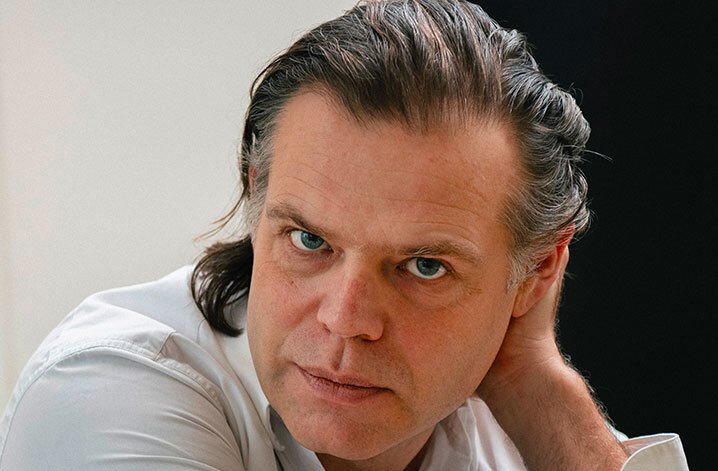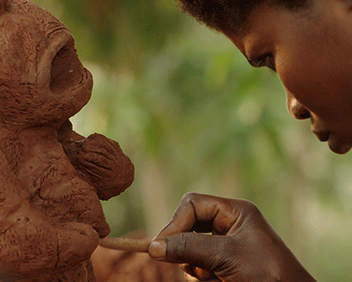Renzo Martens (1973) studied political science and art. He gained international recognition with the films Episode I, and Episode III: Enjoy Poverty, which was televised in more than 23 countries.
In 2012, Martens established Human Activities and its Gentrification Program in DR Congo, a research project which goal is to prove that artistic critique on economic inequality can bypass it not symbolically, but in material terms. Together with the plantation workers, the Institute launches the Cercle d'Art des Travailleurs de Plantation Congolaise (CATPC), a grassroots platform for the development of new economic initiatives based on the production and sale of critical art. Through the launch of a creative economy, it aims to improve the economic position of its members and their communities. Consequently, they opened an OMA-designed White Cube on a former Unilever plantation in 2017. With the establishment of the White Cube, the mechanisms through which plantations underwrite the art world are reversed. Benefiting of the privileges associated with the art world, the white cube attracts the capital and visibility needed to invent a new ecological and economic model on site. CATPC members make sculptures from river mud; the sculptures are 3D scanned and then reproduced in cocoa and palm oil in Amsterdam (the world’s largest cocoa port) before being exhibited at top galleries and museums worldwide. With the income generated from the sales of their art the workers are able to buy back the land that had been confiscated and taken from them by Unilever. So far they have bought 85 hectares of land, which they are transforming back into rich and diverse, ecological and egalitarian gardens: the post-plantation. The work of the CATPC has been shown in a solo exhibition in ScultptureCenter New York, Mori Art in Tokyo, KW Berlin and in the 21st Biennale of Sydney.
White Cube, Martens’ new feature-length documentary film, premiered in Lusanga, Democratic Republic of Congo, where it was screened onto the white walls of the museum, and at the IDFA film festival in Amsterdam, The Netherlands this November, before touring globally.


